The talk-show hosts telling Russians what to believe
How Vladimir Putin’s regime uses TV to keep his people backing the war in Ukraine – even when things go wrong
Scroll down to start
Political talk shows play a powerful role in Russia
Day after day, millions tune in to see larger-than-life presenters discuss what is happening across the border in Ukraine. Their shows are selling a compelling story - one where Russia is the hero and Ukraine and the West the villains.
These hosts are utterly loyal to Vladimir Putin and have demonised Ukraine since 2014, when it aligned itself more closely with Europe. When Russia invaded last year, they framed it as a swift operation to "liberate" Ukrainians but that changed as progress on the battlefield stalled.
Meet four of the most famous faces on TV and listen to what they are telling the Russian public.
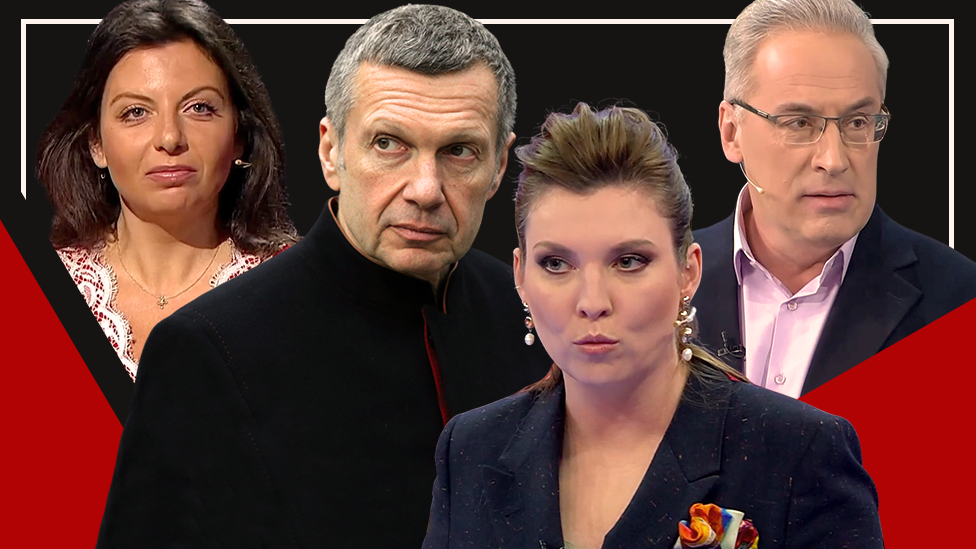
Vladimir Solovyov

Vladimir Solovyov is well-known for his emotional and often vulgar outbursts.
He has a prime-time TV show, daily podcasts and his own streaming channel, making him a voice that is hard to avoid.
He often refers to the conflict in Ukraine in religious terms, portraying it as a “holy war” and a clash of civilisations that Russia can't afford to lose.
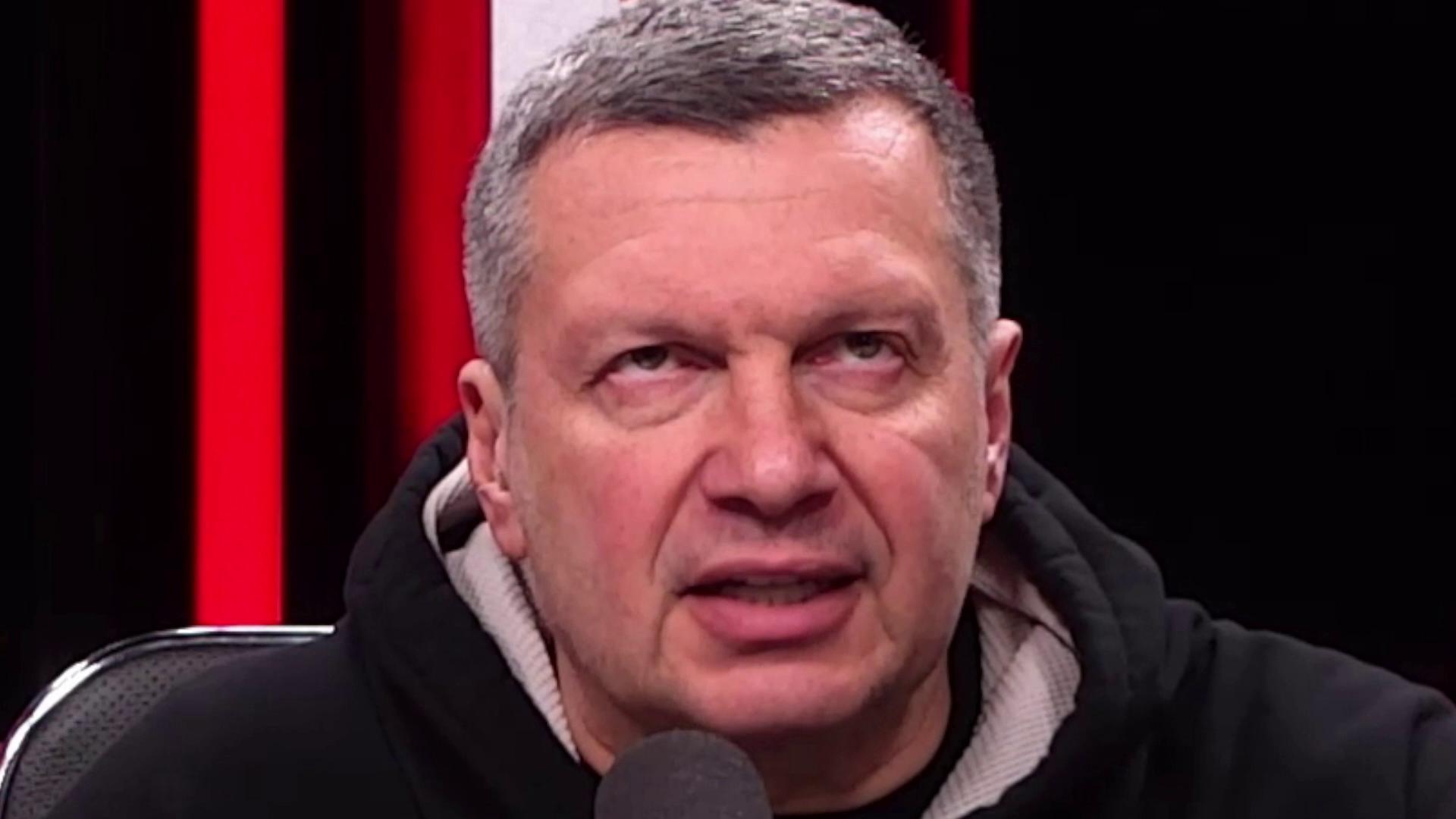
If you think we'll stop at Ukraine, think it through 300 times. I'll remind you that Ukraine is just an intermediate step in the establishment of the strategic security of the Russian Federation.
Vladimir Solovyov
Olga Skabeyeva

Olga Skabeyeva is a rising star in the world of Russian political talk shows.
A tough-talking and fiery co-host alongside her husband Yevgeny Popov, critics have referred to the ultranationalist as the “Iron Doll”.
She is one of the most influential TV hosts shaping the way Russian audiences view the war.
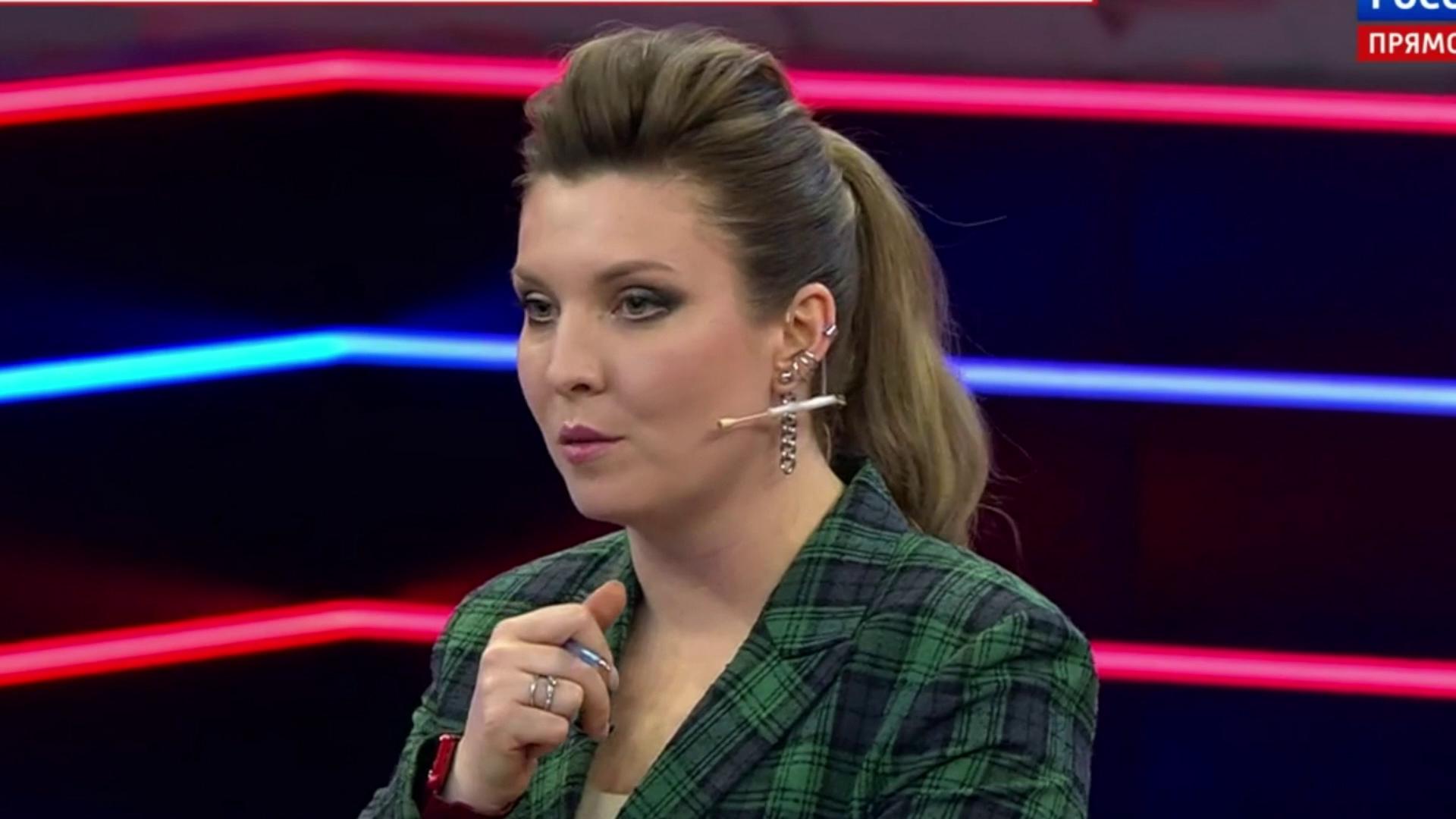
Now we will have to demilitarise the whole of Nato. I've said it many times, then people gasp in shock. This is what we call World War Three.
Olga Skabeyeva
Andrey Norkin

Andrey Norkin is an experienced host and one of the old guard whose TV career began before President Putin tightened his grip on the media.
He has adapted to this new environment but is open about the Kremlin's tight control of state media and was reluctant to share his views on Russia’s withdrawal from Kherson last year, saying: “I don’t want to go to jail.”
He has a calmer presence than his more animated peers, although his show can still be chaotic, with guests shouting over each other.
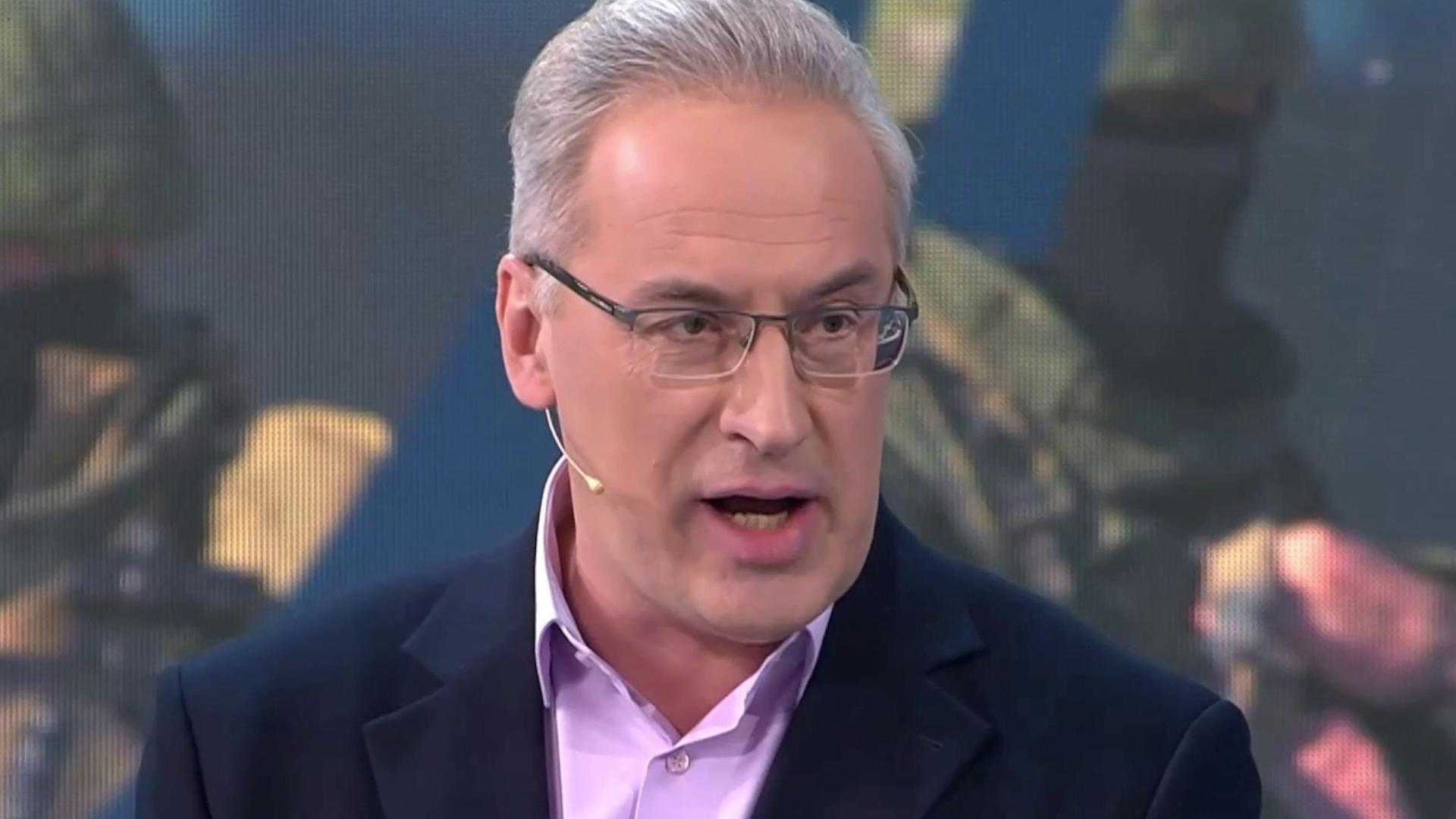
Meeting Place on NTV is not only the friendliest talk show on television, but also a show that likes jokes. Even dark humour.
Andrey Norkin
Margarita Simonyan

Margarita Simonyan’s meteoric rise was reflected when she was appointed editor-in-chief of RT, Russia’s main international propaganda outlet, at just 25 years old.
She once described information as a “weapon like any other” and is fervently loyal to President Putin, receiving a state award for her work personally from him last year.
Simonyan is a frequent guest on several Russian TV shows, including Vladimir Solovyov’s.
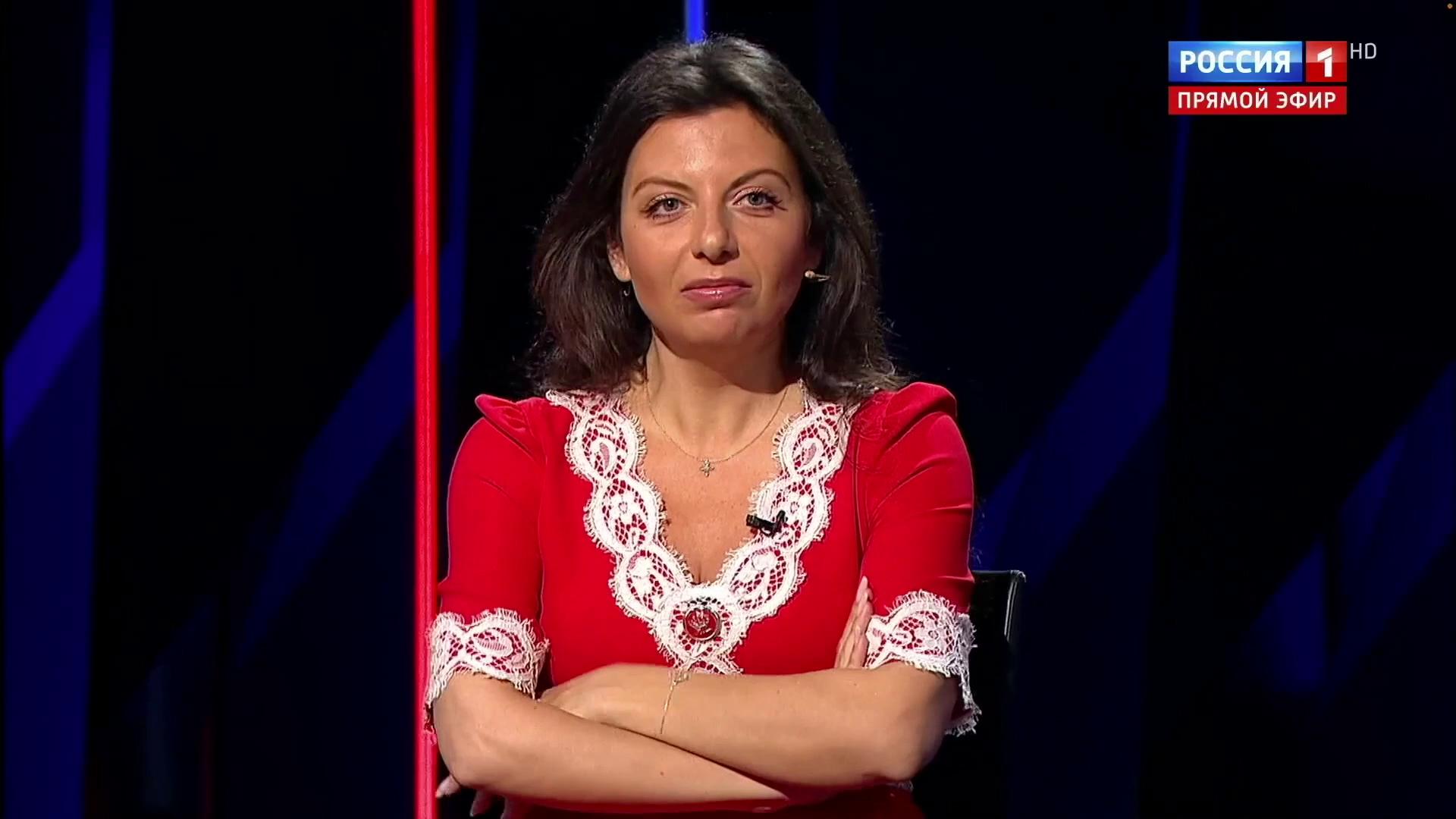
I recently re-read some of the letters I sent back home when I studied in the US. I wrote to my parents: 'I get the sense that this isn’t a country, but a kindergarten for mentally disabled children'.
Margarita Simonyan
How the narrative has changed
These four personalities have driven the pro-Kremlin narrative of the war in Ukraine since Russia’s invasion a year ago.
They’ve celebrated victories on the battlefield and shrugged off defeats as small setbacks in a war they believe Russia can only win.
Here’s an insight into some of the recurring themes in their coverage and how their tone has changed over the course of the war.
A ‘special military operation’
When Russia invaded Ukraine in February last year, the talking heads on TV were confident of a quick victory against what they viewed as an inferior enemy.
President Putin referred to the invasion as a “special military operation” rather than a war and a former general on Olga Skabeyeva’s show predicted it would take “a week maximum”.
As Russian helicopters landed on the outskirts of Kyiv, Skabeyeva herself joked about President Volodymyr Zelensky fleeing to London or Paris.
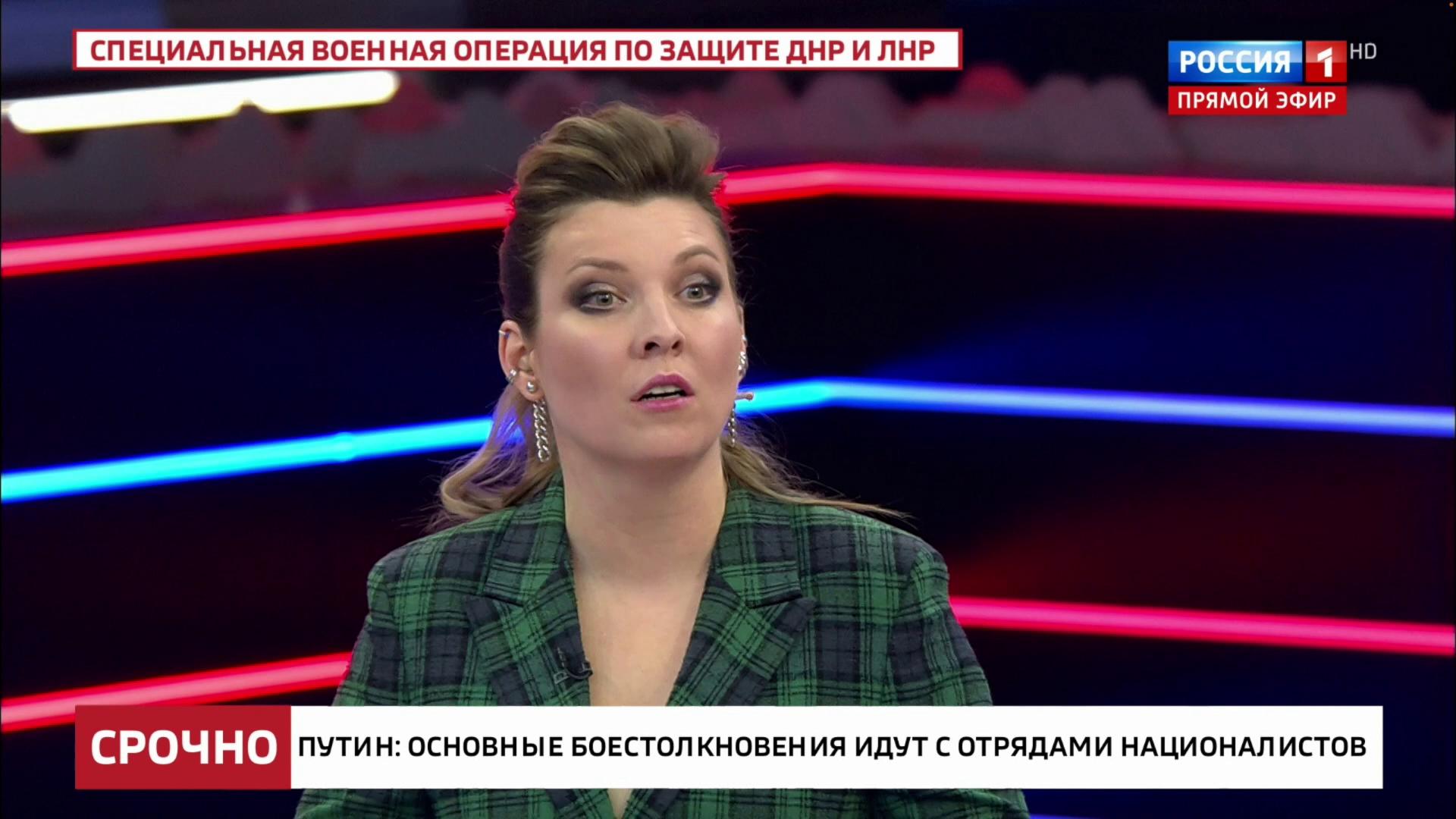
As for the government in exile, it will be formed in either London or Paris. Zelensky simply has to choose.
Olga Skabeyeva
The ‘denazification’ of Ukraine
The justification for Russia’s invasion has often centred on the so-called “denazification” of Ukraine, with presenters alleging that the country had been taken over by far-right groups and neo-Nazis.
While there were far-right groups in Ukraine before the invasion, they made up a small minority and played no part in the country’s government.
That hasn’t stopped TV pundits talking up the idea of saving “ordinary people” in Ukraine from the “madness of Nazism”.
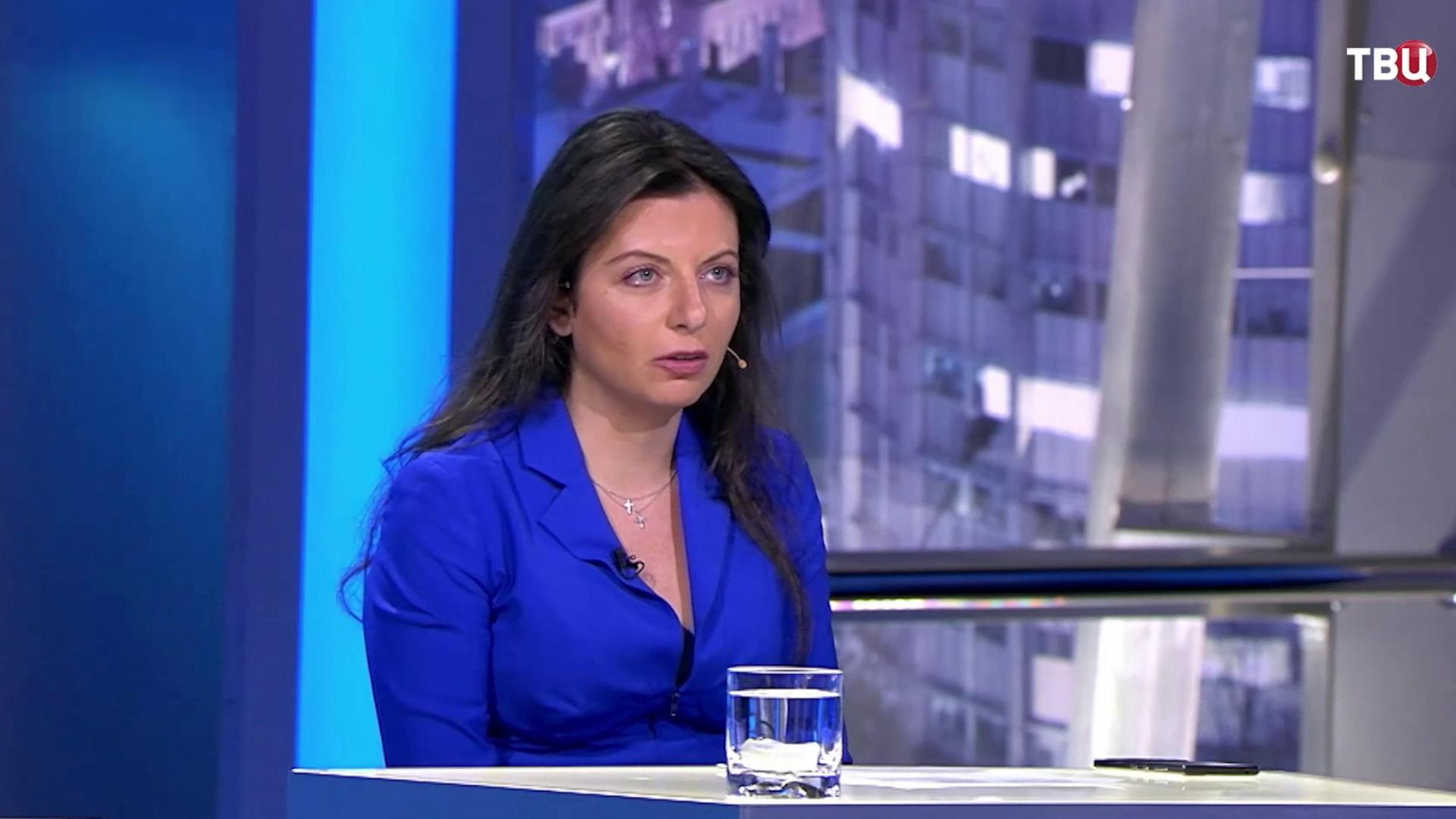
Our most important task is to free normal people. Free them from the guns held against their backs by these Nazis.
Margarita Simonyan
The threat of nuclear weapons
As the months went by, and Russia withdrew from around Kyiv and saw its forces pushed back in the south and east of the country, talk of a quick victory disappeared.
In a bid to reassure viewers that Russia remained strong, the talk show hosts increasingly discussed the country’s nuclear weapons arsenal and the potential use of them to change the course of the war.
And on the day of the Queen’s funeral at Westminster Abbey last September, attended by several Western leaders, Olga Skabeyeva joked about it being a good time to “nuke London”.
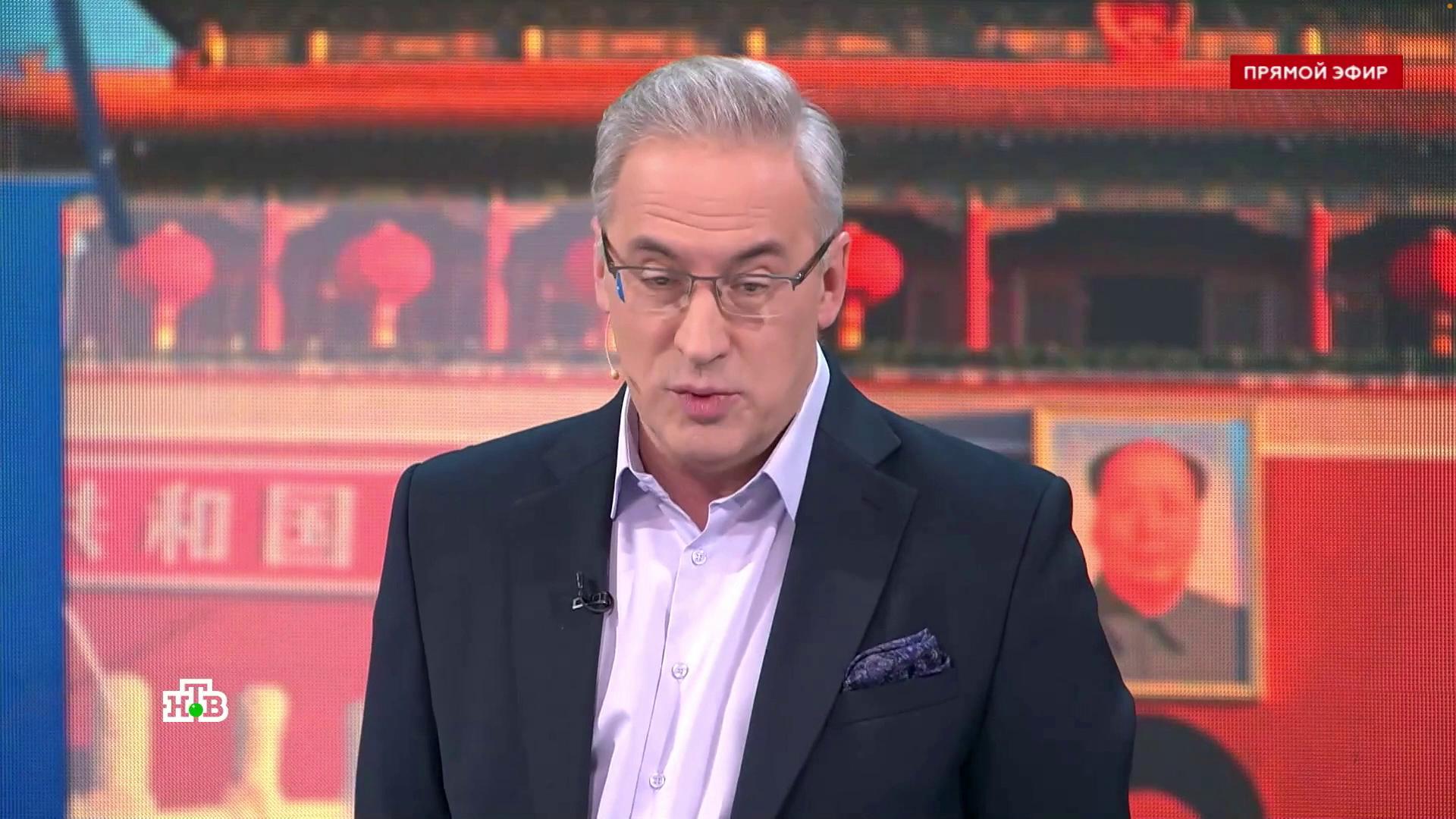
If Russia suffers so greatly, we'll have no choice but to respond. And we will respond with all means available.
Andrey Norkin
A clash of civilisations
As the setbacks have continued and Russia’s forces have been left increasingly humbled, the Kremlin media machine has looked for new ways to sell the war to the Russian people.
More and more it has been framed as a struggle against a depraved West which has rejected its Christian morals in favour of “non-traditional values”.
Offensive rhetoric escalated, with the West often labelled as “satanic”.
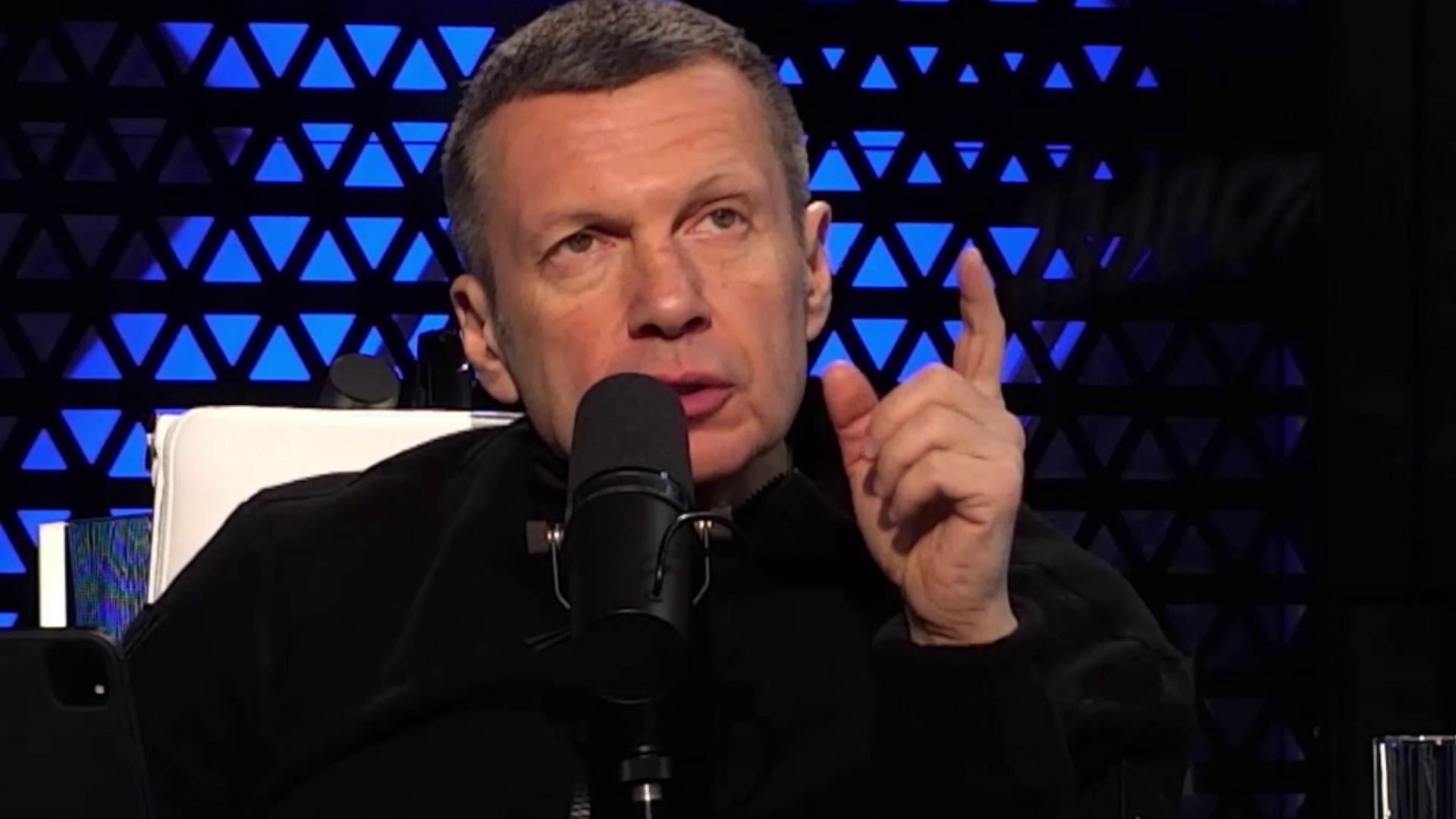
We're fighting against satanists. This is a holy war and we have to win!
Vladimir Solovyov
Backing Putin in long war
On state TV, rare discussion of Russia’s failure to meet its military objectives concludes not with criticism of President Putin, but attacks on lacklustre generals on the front line.
In recent months, the hosts have been preparing their audience for a longer conflict against the West as Ukraine’s allies have increased their military support for President Zelensky.
Speaking on his show in December, Vladimir Solovyov said: “There’s no doubt there is a difficult war ahead of us.”
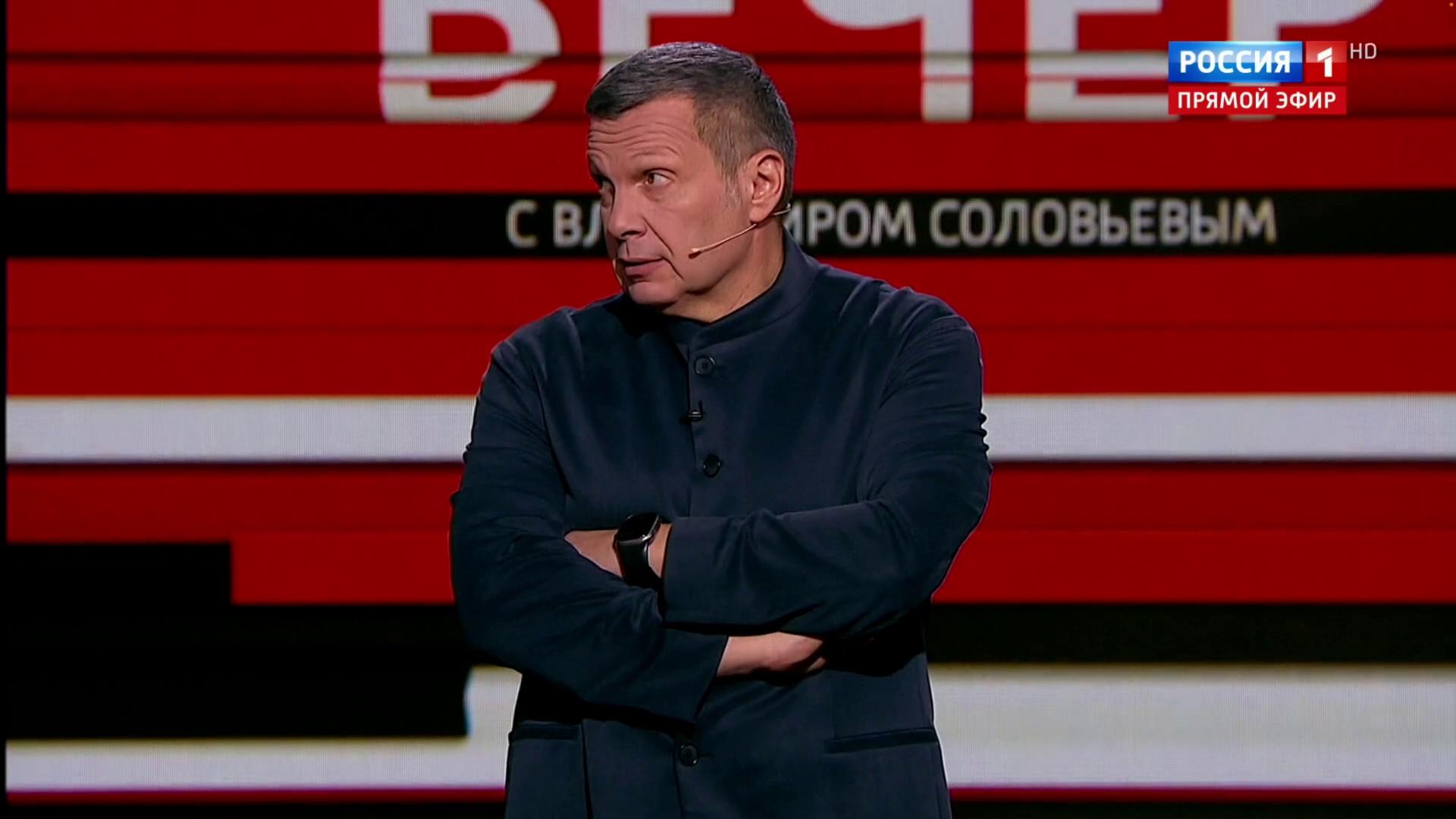
Firstly, it's a war for Russia's survival. Nobody's planning to give up. This will be a long war and not just with Ukraine. Ukraine is just a fragment. If they manage to push us back further, they won't stop. We need to prepare for a long, serious and great war.
Vladimir Solovyov
TV is key to Putin's power
These four hosts are just part of a powerful media machine. Polling suggests TV is by far the most popular information source for Russians, with around two-thirds of the public receiving their news from Kremlin-controlled channels.
With the Ukraine conflict dragging on and the potential for anti-war unrest at home, shown by Sunday’s blast at a café in St Petersburg, that grip on public opinion is crucial for President Putin.
So tonight the studios will light up again, the cameras will roll, and a succession of TV hosts will continue to tell Russians what he wants them to hear.
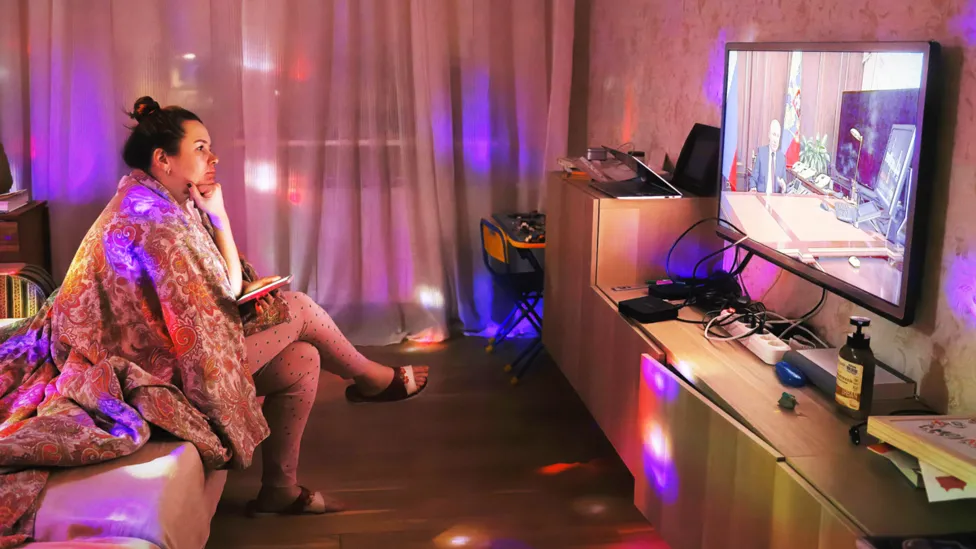 Ukraine: Watching the war on Russian TV - a whole different story
Ukraine: Watching the war on Russian TV - a whole different story
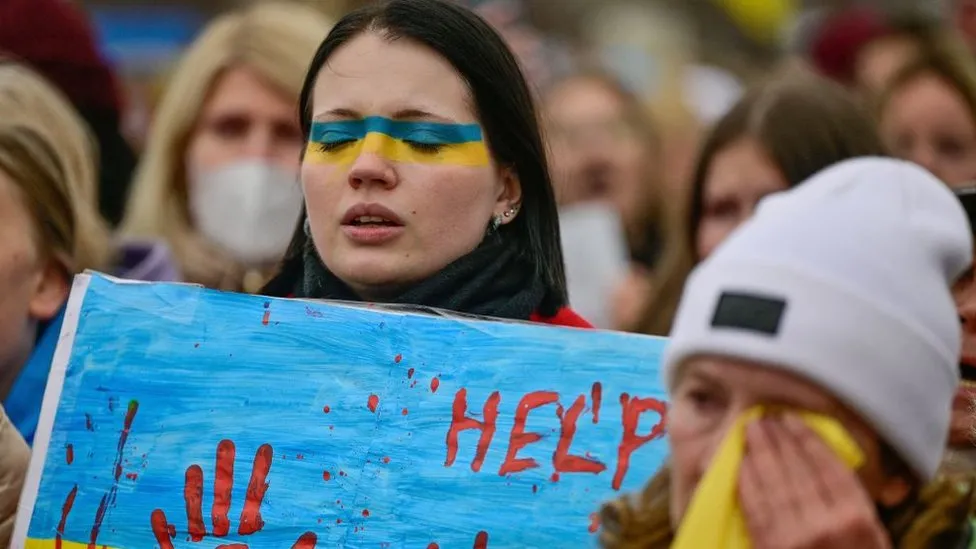 Ukraine war: Russians fed twisted picture and one voice - that of Putin
Ukraine war: Russians fed twisted picture and one voice - that of Putin
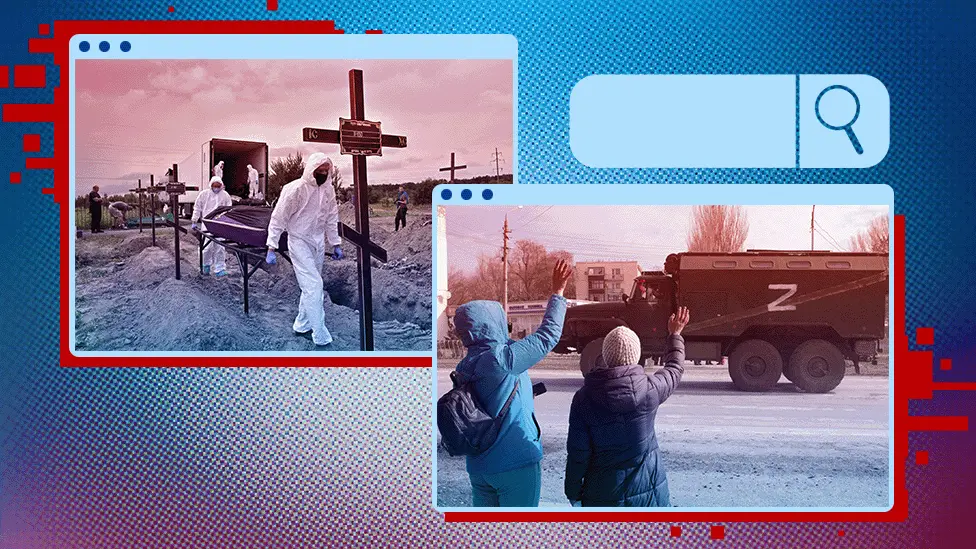 Ukraine war: Russians kept in the dark by internet search
Ukraine war: Russians kept in the dark by internet search